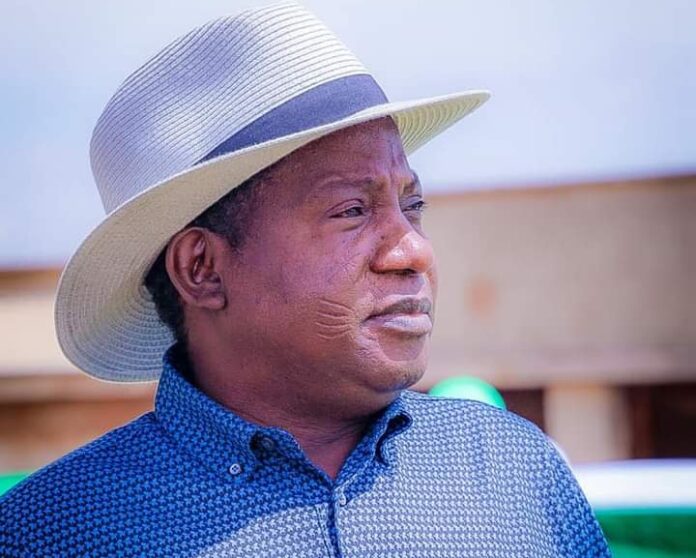Mr. Simon Lalong, Governor of Plateau State. (Credit: Facebook, Plateau State Governor’s Directorate of press affairs.)
By Marie-Therese Nanlong
Jos – Community Initiative for Emancipation of Vulnerable Children and Women, a non-governmental organisation has trained prospective board members of the Plateau state Gender and Equal Opportunity Commission, on work ethics and responsibilities.
Plateau state government gazetted the Gender and Equal Opportunity, GEO Law in 2018 and approved the establishment of the gender commission in August 2021.
Plateau State in recent times has recorded tremendous increase in cases of gender-based and domestic violence.
The training which was held in Jos was part of efforts towards implementation of the law and ensuring that the board members of the commission understood their responsibilities and make positive impacts while discharging their duties.
The Executive Director of the Community Initiative for the Emancipation of Vulnerable Children and Women, Mrs. Sewuese Jam, said, “the training is to ensure the board drives the commission to be effective and achieve positive results. To understand unclear terms in the GEO Law and Violence Against Persons Prohibition (VAPP) Act and to develop a reporting template draft.”
READ : Celebration in Plateau community as Foundation builds 50-bed health center
Also, a peace consultant, Mr. Chom Bagu, described the responsibilities of the Board as critical in ensuring ethical and legal integrity of the Commission, stating, “the board should be formidable and have the capacity to network politically to garner support for the Commission,” as such would ensure they achieve their objectives.
In her presentation on the role of women on the Board, a gender consultant, Mrs. Angela Adeoye, said that the Commission was responsible for monitoring issues concerning gender equality and ensuring compliance as provided in the constitution.
“The Commission is to promote gender mainstreaming to achieve equality, investigate a possible violation of rights relating to gender. Receive and consider complaints from the public and take such action regarding the complaints as considered appropriate. Conduct research into issues relating to gender and social justice and recommend changes to laws and practices which lead to discrimination based on gender.”
She explained that members of the board are required to “recommend affirmative action programmes to achieve gender equality. Recommend prosecution for criminal violation of rights relating to gender and secure appropriate redress where rights relating to gender have been violated.”
Participants at the training included 55 directors and executive directors of government ministries, departments, and agencies as well as civil society organisations.
















